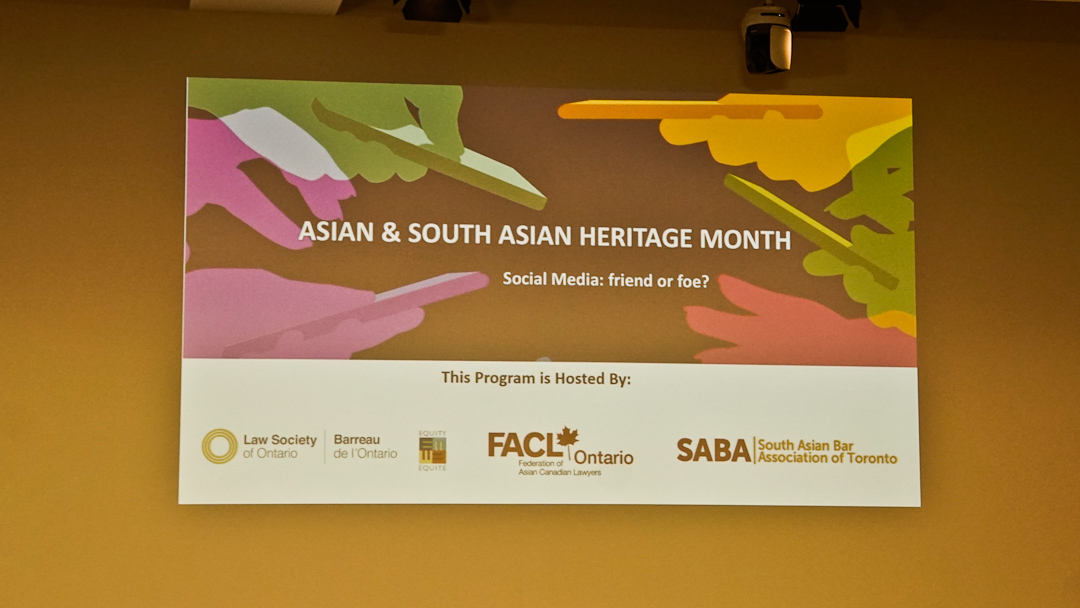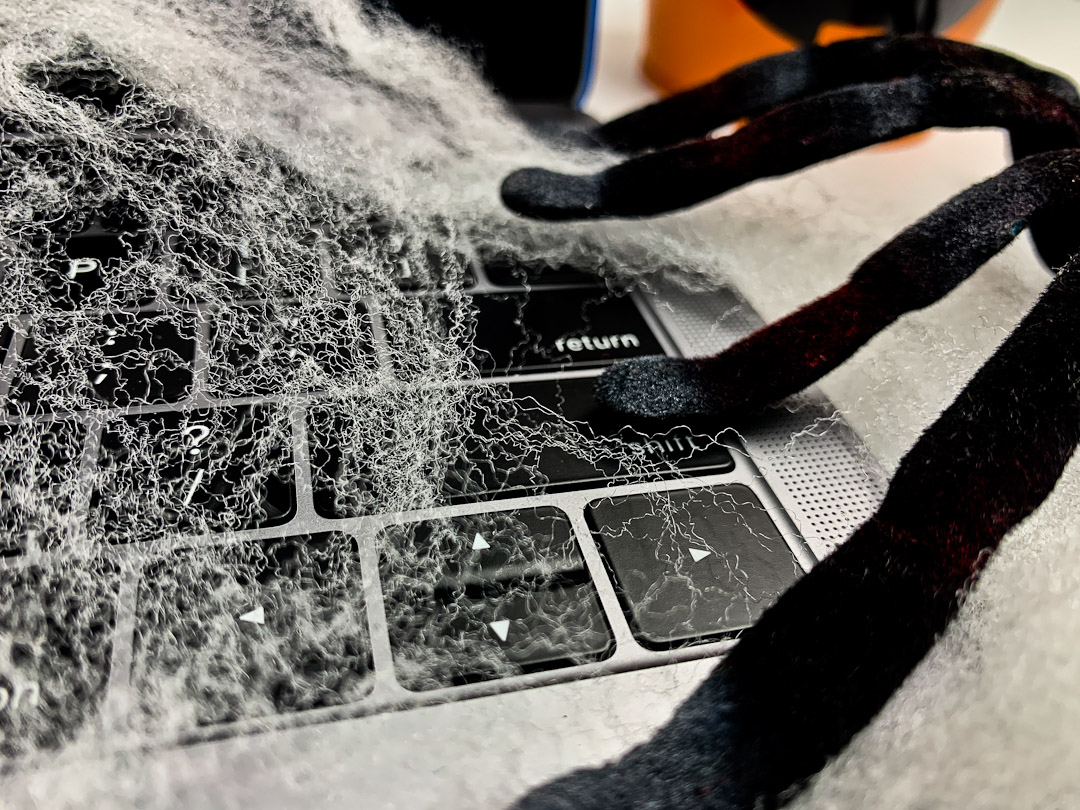
Social Media: Opportunities and Risks for the Legal Profession
“Social Media: friend or foe?” was the topic discussed at the Asian and South Asian Heritage Month Program held a few days ago. This was a joint event among the Law Society of Ontario (LSO), the Ontario chapter of the Federation of Asian Canadian Lawyers (FACL Ontario) and the South Asian Bar Association of Toronto (SABA Toronto).
The discussion was about “the divisive impact of online platforms on communities, and how social media can be used as a tool to unite people”.
The speakers provided insight and warnings about the use of social media which could impact a lawyer in a variety of ways. I’d like to highlight three areas they discussed.
1. No Gatekeeper
Philip Mai, Director of Business and Communications at Ryerson University Social Media Lab, presented on “The State of Social Media in Canada: Implications for Policing and the Legal Profession”.
He noted that social media offers new opportunities to build and sustain relationships. It also bypasses gatekeepers for more efficient and timely communications. Yet the lack of gatekeepers is a risk, especially since social media is highly curated and easily manipulated. Given that social media is full of bots, he cautions us to beware if we rely on social media as evidence.
When Philip raised the concept of no gatekeeper, it made me think of how social media has indeed allowed lawyers to bypass the media and our marketing departments to communicate. This can be good; for example, being able to quickly publish insight and commentary on proposed changes to the law that are written in a thoughtful and professional manner. Yet no gatekeeper can be bad; for example, think reputation, which is described below, or Elon Musk.
2. Reputation
Speaking next was Paul Jonathan Saguil, Associate Vice President, Innovation, Governance, and Risk Strategies in TD Bank Group’s Global Anti-Money Laundering Department. He provided very important reminders for lawyers personal and professional-wise.
For instance, we need to remember that what we say and write on social media can haunt us for weeks and months. Also we need to keep top of mind what’s out there about us because someone may do due diligence to determine whether it would be a risk to work with us.
Paul mentioned a case involving an articling principal who did not monitor the social media use of his articling student. What was shared on social media brought disrepute to the legal profession.
Also, Paul spoke about social media use by employees and whether organizations have rules on such use. Someone can attribute a remark to an individual and tie it back to where the person works. He mentioned an “advocacy policy” (i.e. who on behalf of an organization is allowed to speak).
Paul’s reminders resonated with me a lot since I speak about professionalism issues as they relate to a lawyer’s use of social media. For instance, we need to keep our reputation in mind when communicating on social networking platforms; even remarks made in a personal use context can affect our professional image and those we work with. Also, if we delegate, we need to supervise.
3. In-person Connections
Aarondeep Bains, president of SABA Toronto, noted that social media is fundamental to grassroot organizations and racialized communities. This is in part to the low cost investment to use social media to broadcast a message.
He discussed some protests where there was a significant following, but they failed to effect significant change. One key ingredient to effecting significant change is to be specific in knowing what question you want to answer and finding an audience to tie it to. He mentioned the article “The Problem with Social-Media Protests” by Antonia Malchik published in The Atlantic. The deck reads: “Online movements can burn out faster than campaigns that spend months or even years forging in-person connections.”
For me, Aarondeep’s comments reinforces the importance of integrating online and offline activities to strengthen relationships we build online.
I really enjoyed the speakers’ discussion and Q&A, which were moderated by Maneesha Gupta, a FACL Ontario board member.
Here are a few highlights from the other lawyers who provided remarks at this Asian and South Asian Heritage Month Program:
- LSO Bencher Julia Shin Doi noted that the House of Commons has proclaimed June as Filipino Heritage Month.
- Peter Choe, a FACL Ontario board member, talked about FACL Ontario’s Asian Heritage Month Name Challenge to foster inclusion by using social media to make hearing Asian names more commonplace and familiar, and to increase opportunities for pan-Asian Canadian lawyers.
- Devin Persaud of SABA Toronto reminded us that we always need to progress with ourselves and our firms to push the diversity and inclusion mandate.
On that note, let’s nurture our relationships offline with those we’ve met in our online communities. Each in-person meeting can lead us closer to effecting significant change when it comes to diversity and inclusion.



